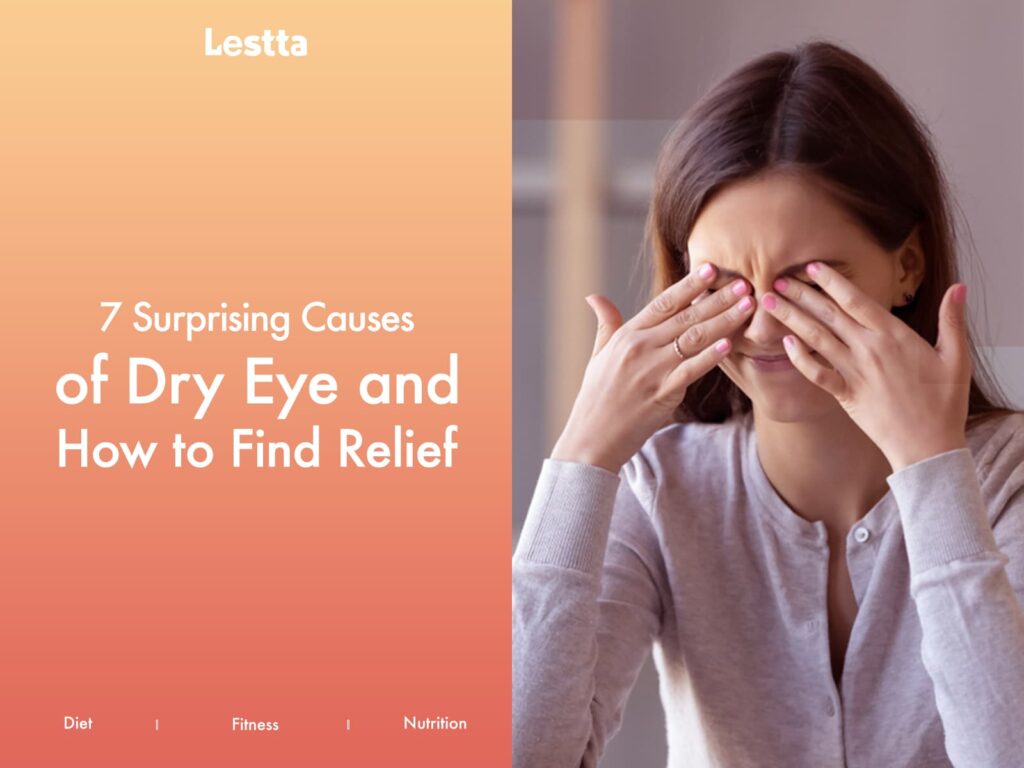
Dry eye is a common condition that affects millions of people worldwide. It can cause discomfort, irritation, and even affect your vision. While many people assume that dry eye is caused by simply not producing enough tears, there are actually a number of surprising factors that can contribute to this condition. In this article, we’ll explore 7 of these causes of dry eye and offer tips on how to find relief.
1. Computer Use
Many people spend hours staring at screens each day, whether for work or leisure. Unfortunately, this can contribute to dry eye. When we look at screens, we tend to blink less frequently, which can lead to dryness and discomfort. To combat this, try taking breaks every 20 minutes or so to rest your eyes and blink more frequently.
2. Weather
Dry eye can also be caused by environmental factors, such as wind, dry air, and high altitude. If you live in a particularly dry or windy area, or you’re traveling to a place with a different climate, you may notice that your eyes become dry and irritated. Using a humidifier in your home or office can help add moisture to the air and relieve dryness.
3. Medications
Certain medications can also contribute to dry eye. These include antihistamines, decongestants, and antidepressants. If you’re taking one of these medications and you’re experiencing dry eye, talk to your doctor about potential alternatives.
4. Age
As we get older, our bodies produce fewer tears, which can lead to dry eye. Additionally, hormonal changes during menopause can contribute to this condition. If you’re over 50 and you’re experiencing dry eye, talk to your eye doctor about potential treatments.
5. Contact Lenses
Wearing contact lenses can also contribute to dry eye. This is because the lenses can absorb moisture from the eye, leading to dryness and irritation. If you wear contacts and you’re experiencing dry eye, talk to your eye doctor about potential solutions, such as switching to a different type of lens.
6. Allergies
If you have allergies, you may be more prone to dry eye. This is because allergies can cause inflammation and irritation in the eyes, leading to dryness. If you’re experiencing dry eye and you have allergies, talk to your doctor about potential treatments, such as allergy medications or eye drops.
7. Autoimmune Disorders
Finally, certain autoimmune disorders can contribute to dry eye. These include Sjogren’s syndrome and rheumatoid arthritis. If you have one of these conditions and you’re experiencing dry eye, talk to your doctor about potential treatments.
In conclusion, dry eye is a common condition that can be caused by a variety of factors. By understanding these causes of dry eye and taking steps to address them, you can find relief from dryness, discomfort, and irritation. Whether you’re taking frequent breaks from screens, using a humidifier, or talking to your doctor about potential treatments, there are many ways to combat dry eye and protect your vision.









